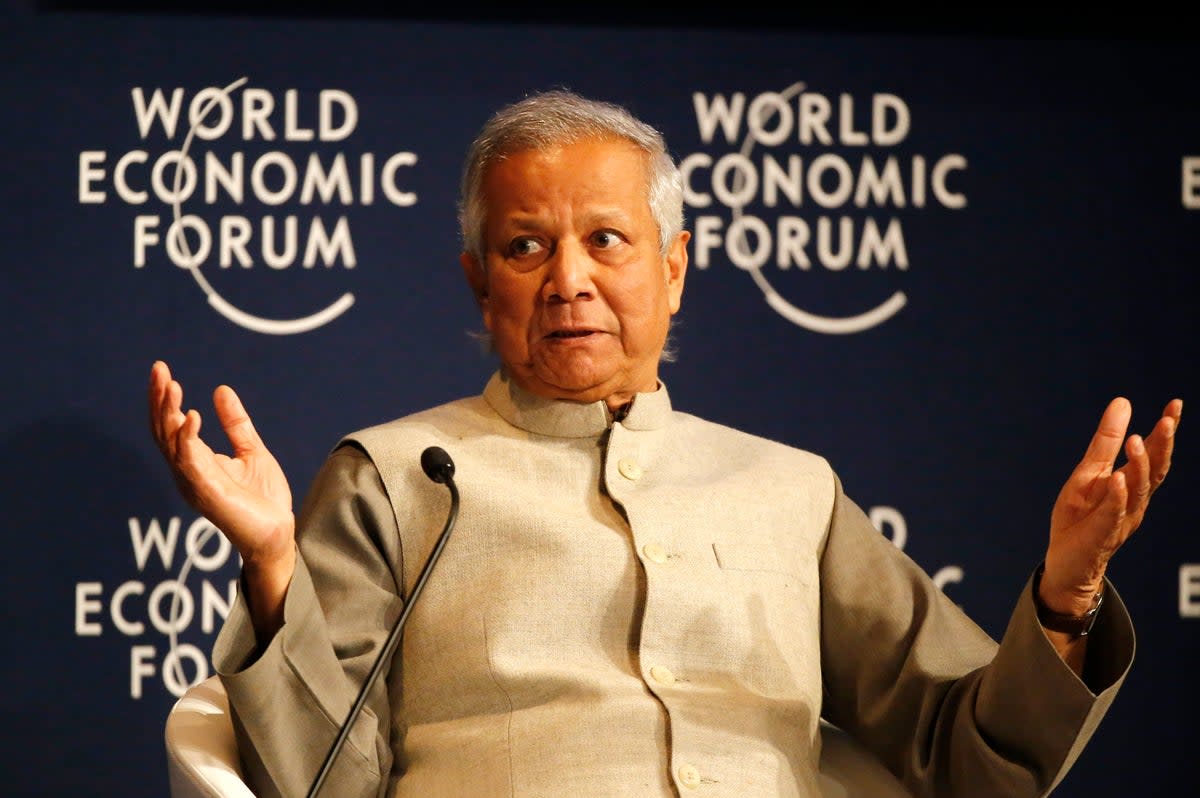Nobel Peace Prize winner and government critic sentenced to jail days before Bangladesh election

Bangladesh has jailed Nobel Peace Prize laureate Muhammad Yunus over labour law violations, after a trial that has been criticised as politically motivated ahead of the country’s general election.
A labour court in Dhaka convicted the 83-year-old acclaimed economist and three other colleagues from Grameen Telecom on Monday of failing to create a welfare fund for its employees.
All four have denied any wrongdoing in the case. They have been granted bail pending appeal.
“As my lawyers have convincingly argued in court, this verdict against me is contrary to all legal precedent and logic,” Yunus said in a statement released after the verdict.
“I call for the Bangladeshi people to speak in one voice against injustice and in favour of democracy and human rights for each and every one of our citizens.”
Abdullah Al Mamun, a lawyer for Yunus, said he would appeal against the verdict, describing the case as politically motivated and aimed at harassing the prominent critic of prime minister Sheikh Hasina.
Yunus is known as the “banker to the poor” and he and his Grameen Bank were jointly awarded the Nobel Peace Prize for their work lifting people out of poverty in 2006.
He is recognised for introducing an innovative microfinance programme that provides small loans – typically under $100 – to the rural poor in Bangladesh. This initiative has paved the way for a global movement known as microcredit.
Sheikh Merina Sultana, the head of Dhaka’s third labour court who handed down the guilty verdict, said 67 Grameen Telecom employees were expected to be granted permanent status, and that they did not have employees’ participation and welfare funds.
Additionally, she noted that in accordance with company policy, 5 per cent of the company’s dividends were meant to be allocated to staff.
Yunus and the prime minister have repeatedly clashed in public statements, with Ms Hasina accusing him of “sucking blood from the poor”.
His supporters say the government is attempting to discredit him because he once considered setting up a political party to rival Ms Hasina’s Awami League, part of a wider crackdown by the government on political dissent.
Yunus had briefly flirted with the idea of forming his own political party – Citizen Power – during a period of animosity with Ms Hasina’s Awami League. He promised to end corruption with his new party but dropped the plans within months, citing a lack of support.
Yunus, who returned to Bangladesh in the 1980s after studying in the US, is facing more than 100 other charges over labour law violations and alleged corruption.
More than 170 global figures, including human rights activists and former US secretary of state Hillary Clinton, have called on the government to stop the “persecution” of Yunus in an open letter.
The letter was signed by people including Virgin Group founder Richard Branson, U2 lead singer Bono and former US president Barack Obama, and spoke out against the “continuous judicial harassment” of the Nobel laureate.
It comes as Bangladesh is gearing up for a general election on 7 January and Ms Hasina is vying for a fifth term. Bangladesh’s main opposition party, the Bangladesh Nationalist Party (BNP), is boycotting the election after many of its top figures were either jailed or fled into exile.
The opposition has called it a “one-sided dummy election”.

 Yahoo News
Yahoo News 
